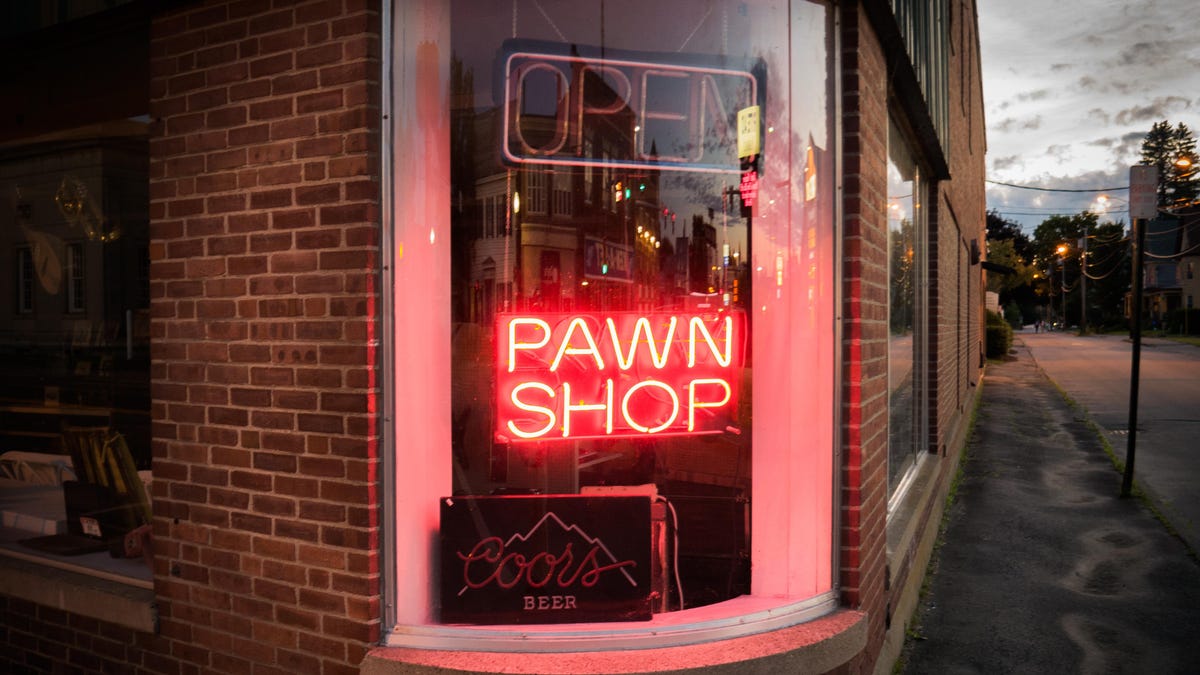It’s a universal rule of finance: If you’re seeking a short-term loan to cover an emergency expense, you’re not in a good place, financially speaking. But since most of us have very little savings in the bank, most of us aren’t in a good place financially. So when an emergency expense comes up, the only options are kind of not great—like using a high interest credit card, or taking out a payday loan with ridiculous interest.
If you need a little quick cash and you’re unbanked or can’t access a more traditional line of credit, a payday loan or a cash advance app like Dave might seem like your only options. But if you own anything of value, you have another route you should consider: the old-fashioned pawn shop.
How pawn shops work
Pawnbroking has existed in some form for thousands of years, and is a pretty straightforward transaction: You bring an item or items to a pawn shop, where it is appraised. The pawnbroker then offers you a fraction of its appraised value as a loan, and you agree to pay back the amount plus interest within a specific period of time. The pawnbroker keeps your item and gives you the money. If you pay back the loan within the agreed time, you get your stuff back. If you don’t, the pawn shop puts it up for sale to recoup the loan.
The two main disadvantages of pawning your stuff are obvious: One, you’re only going to get partial value for your stuff—typically between 25% and 60%, and they usually charge one-time financing fees that reduce the amount of cash you get even further. That means selling your stuff would work out better for you, because you’ll get 100% of the value of your item. Two, you can lose your stuff, which can be both a financial and sentimental loss if you’re pawning something you have an emotional connection to. But there are some very real advantages to going the pawn route to cover a short-term need for cash.
Advantages of pawning
If you need fast cash and you have something a pawn shop would want (anything with some resale value will generally be pawn-able, but it will depend on the pawn shop’s local market and existing inventory), there are reasons to consider pawning something instead of the other alternatives:
- Non-recourse. When you take out a personal loan, app loan, or a payday loan, you’re taking out what’s known as a “recourse” loan. What this means is that the lender can come after your other assets if you default on all or part of the debt, for example by seizing property or garnishing wages—if you fail to pay back the debt, you enter into a hell of your own making. But a pawn loan is a non-recourse loan. The only thing the pawn shop can seize if you don’t pay back the loan is the item you pawned as collateral. This limits the damage if you fail to pay it back: Instead of mounting interest charges and harassment from creditors, you simply lose the thing you pawned.
- Same day. Like payday loans and some app-based loans, you can usually get paid by a pawnbroker the same day, often immediately. Unlike a personal loan, there’s very little paperwork.
- No credit check. Pawn shops don’t care about your credit, because you’re offering them collateral—and they’re only loaning you an amount they can afford to lose. So there’s no hit to your credit score because of a hard inquiry, and no hit to your credit score if you default on the loan.
- Low(er) interest. Depending on the state you live in, pawn shops can charge some pretty exorbitant interest rates—about 200% APR on average. That’s still lower than payday loans in many states, which can top out at close to 700% (god bless Texas).
Finally, if you pay back your loan as agreed, you get your stuff back, which means you financed an emergency and walked away whole. Keep in mind that about 15% of people who pawn items lose them, so using a pawn shop comes with a real risk that other loans don’t have.

